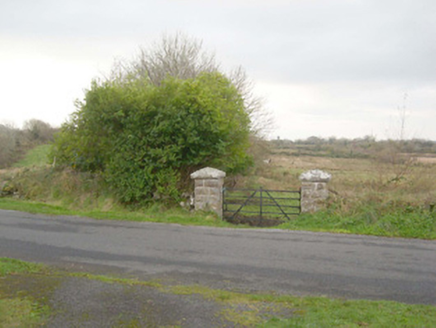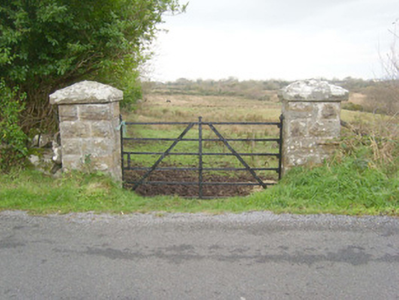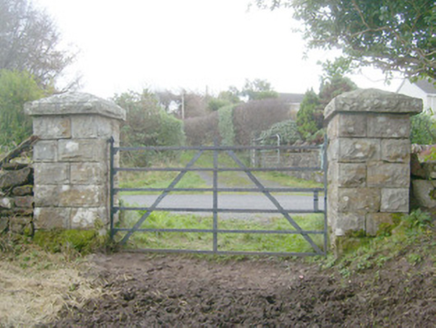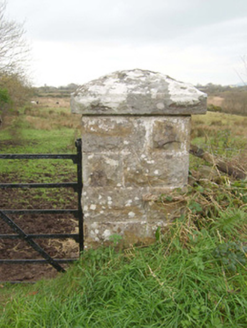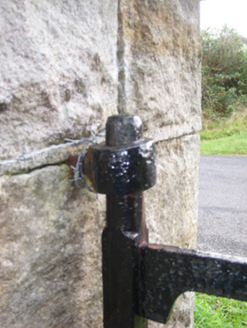Survey Data
Reg No
40846007
Rating
Regional
Categories of Special Interest
Architectural, Technical
Original Use
Gates/railings/walls
In Use As
Gates/railings/walls
Date
1860 - 1920
Coordinates
176876, 376594
Date Recorded
20/11/2007
Date Updated
--/--/--
Description
Field gate, erected c. 1890, comprising a pair of rock-faced ashlar sandstone gate piers (on square-plan) having dressed margins and with rock-faced sandstone capstones over, and having wrought-iron flat bar gate. Located at entrance to field to the north of Dunkineely. rubble stone boundary walls to either side (north-west and south-east).
Appraisal
This simple but well-built gateway retains its original form and character. The robust rock-faced gate piers show skilled execution, and are testament to the skill of local craftsmen at the time of construction. Gate piers of this type are more typical of the gateways found at the entrance to a gentleman farmer's residence etc., and are unusual to find at a field gate. The location of this gateway suggests that it may have been erected by the Bustard family of Belville (see 40846006) a short distance to the south-west, and it is one of two gateways of similar design in this area (see 40846008). The rock-faced construction is reminiscent of railway engineering and architecture dating from the end of the nineteenth-century, which suggests that this gateway dates to this period. The functional wrought-iron gate survives in good condition and is an example of traditional ironmongery. Simple entrance gateways of this type were once a ubiquitous feature of the rural Irish landscape but are now becoming increasingly rare on account of clearance to accommodate modern agricultural needs and road widening schemes etc., making this example at Cashelfean an interesting survival of its type. Although construction was primarily functional, this gateway exhibits visual appeal in the rural countryside and adds incident along an approach road into Dunkineely from the north, and is a worthy addition to the built heritage of the local area.
